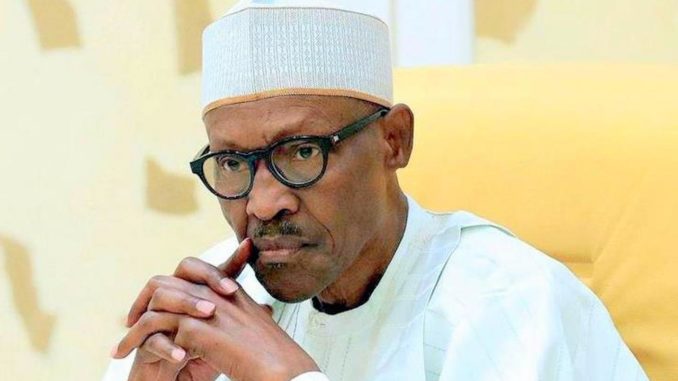
PRESIDENT Muhammadu Buhari’s recent lamentation over the prevailing bloodletting and insecurity in the country was cold comfort to Nigerians. His vivid observation of the self-destructive impact of violence and its abhorrence by major faiths also failed to reassure his fellow citizens who are sorely disappointed in his government’s inability to protect lives and property. He should adopt a hands-on approach and fulfil his campaign promise to dispassionately stamp out lawlessness and punish offenders.
Buhari has not only dashed hopes, he has polarised the country afresh; his distraction has facilitated impunity by criminals and security chiefs, while failure to swiftly apprehend and punish mass murderers has emboldened deviants, most notably, Fulani herdsmen and militants, who are competing with Boko Haram in delivering the mounting body count.
For once, however, Buhari appeared to appreciate the pain of millions of Nigerians caught in the vortex of violence, terrorism and brigandage. No culture or religion, he asserted, supports such disregard for the sanctity of life. His appeal that people should embrace peace and tolerance is coming rather late in the day. Buhari’s mandate is to stop the carnage, not to lament.
Though the seeds of violence and bloodletting – mutual hostility, terrorism, kidnapping, armed robbery, arson, gang violence, political thuggery and the Fulani carnage – were sown before his Presidency, he has not made the difference that his military background suggested to the electorate. True, he has degraded Boko Haram’s hold on the North-East region, but insecurity has continued to ravage the country. Fulani herdsmen and militants, encouraged by persistent justification of their incursion into farms by top government functionaries, operate with murderous impunity.
Too much blood is flowing in Nigeria. Fifty-five persons died in the latest round of inter-communal violence in Kasuwan Magani, Kaduna State, that prompted Buhari’s appeal for tolerance; the International Crisis Group estimated that 2,500 were killed 2016 in “herders-agrarian communities clashes” and an average 2,000 per year 2011 to 2016, “in some cases, exceeding the toll from Boko Haram insurgency.”
The toll from terrorism 2010 to 2016, according to Borno State Governor, Kashim Shettima, reached 100,000 dead with over 2.5 million displaced. One tally put the number of persons killed in the first 10 weeks of 2018 at 1,351 from herdsmen attacks, kidnapping, communal and sectarian warfare. In Zamfara State, local and cross-border bandits have rustled thousands of cattle, razed entire villages and killed policemen and soldiers in audacious attacks. A dozen villages were destroyed during a four-day killing spree in which 200 persons died in Plateau State in June. Bandits killed 1,135 persons from 2011 to 2015 in Zamfara, says the Nigerian Security and Civil Defence Corps.
Kidnapping for-ransom has spread nationwide from the South-South and South-East regions, with perpetrators sometimes executing their victims even after collecting ransom. Robbers, such as the gang that raided banks in Offa, Kwara State, killing about 30 persons, deploy dynamite and heavy machine guns to overwhelm the police. In Lagos, the commercial hub, and other South-West states, street gangs and road transport union members running protection rackets regularly engage in fearsome street battles and assassinations and operate as enforcers for the irresponsible political gladiators.
Buhari needs to adopt a zero-tolerance stance on crime and impunity. Those who commit crimes and take the law into their hands must be pursued, arrested and diligently prosecuted. Whatever the circumstances, the law does not permit anyone or group to trespass on private property, kill, and torch property and carry arms. Perpetrators of the mayhem are hardly ever prosecuted.
The ICG suggests medium to long term conflict resolution measures to tackle sectarian quarrels, land disputes and new ways of cattle rearing such as ranching. To resolve inter-communal land disputes, judicial panels presided over by jurists with no ethnic or residential links to the warring parties, are a tested route used in the past.
Brookings Institution fingers the alarming proliferation of arms in the country – over 350 million small arms are estimated to be in circulation – drug abuse, religious fanaticism and poor leadership as factors fuelling violence. The police are corrupt, inept and often partisan. About 260,000 of them out of the total number of 334,000 recently given by the Inspector-General of Police, Ibrahim Idris, are on private bodyguard duties with politicians and others, leaving the country grossly under-protected.
The government should move with the same doggedness with which it investigated the recent killing of a retired Army general and arraigned 19 suspects at a Jos high court when any other Nigerian is killed or attacked. All illicit weapons should be located and destroyed and the barons, traffickers and persons who hold them, prosecuted.
French and American diplomats’ observation that injustice and impunity are fuelling the killings in the North-Central states should prompt Buhari to act decisively. The security chiefs must justify their positions: the President ignores their failings, including the flouting of his instruction to the IG to move to Benue State and the abject failure of the intelligence services in the Boko Haram war.
Buhari should shake up the military to perform better as the terrorists are rolling back the Army’s earlier success in driving them out of territory. The changing shape and magnitude of today’s security challenges require a massive reform of the system. For instance, the Global Terrorism Index listed Nigeria among five countries that accounted for 71 per cent of all terrorist attacks in 2016.
Our present single police structure has proved – at great cost in lives, limbs and property – to be anomalous: state governors should adequately fund and arm official vigilance groups and spearhead the struggle for a constitution amendment to allow state police forces.
END

Be the first to comment